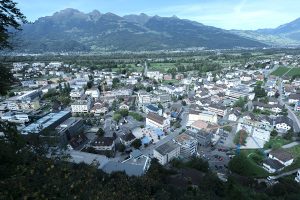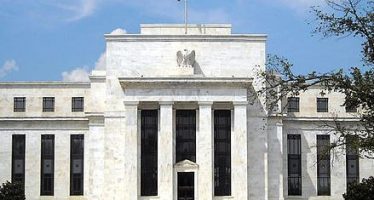Liechtenstein Bankers Association (LBA): Modern Industry Association with the Ambition to Shape the Future

Liechtenstein
The Liechtenstein Bankers Association (LBA), established in 1969, is the domestic and international voice of banks operating in, and from, the tiny but influential principality.
It is one of the microstate’s most important associations and plays a key role in the successful development of the financial centre. Some figures underline the impressive growth of the banking centre over the past 50 years. The balance sheet total increased from around CHF1.5bn (€1.39bn) to CHF72bn (V66.82) and the number of employees from 272 to 2203.
At the end of 2019, Liechtenstein’s banks managed total assets of almost CHF350bn (€325bn).
Along with banks, insurers, and professional trustees, the financial centre includes fund companies, asset managers, and public-benefit foundations. The banks in Liechtenstein have unrestricted access to their two main markets: Switzerland, thanks to the Customs Union of 1923 and the adoption of the stable Swiss franc as the official currency, and the European Single Market, thanks to membership in the European Economic Area (EEA) since 1995 and the associated full incorporation of EU law.
“Liechtenstein stands for stability and security. It enjoys a AAA country rating by Standard & Poor’s.”
The financial centre is a key industry for Liechtenstein’s wealth. It accounts for more than half of the tax income and 23 percent of GDP. With this it is the second-most important sector in Liechtenstein — only surpassed by the indus-trial sector’s share of 43 percent.
Liechtenstein stands for stability and security. It enjoys a AAA country rating by Standard & Poor’s. The banks favour a low-risk business model which shows in an excellent capitalisation with an average Tier 1 ratio of around 20 per-cent.
Private banking has always been, and remains, the core business of Liechtenstein financial institutions. Despite this homogeneous orientation, the banks differ substantially with respect to their size. The three large institutions in Liechtenstein — LGT Bank AG, Liechtensteinische Landesbank AG and VP Bank AG — account for more than 85 per-cent of the balance sheet total. From the national perspective, they are considered to be systemic. A special aspect in this connection is that there is no lender of last resort, i.e. no central bank. Moreover, Liechtenstein is not a member of the International Monetary Fund (IMF).
Long before it has become mainstream, the country and its banks have embraced sustainability as a major driver for the future. However, they take a holistic approach. Sustainability for them is more than climate change.
The United Nations’ 17 Sustainable Development Goals (SDGs) are guiding principles for the LBA’s domestic and international activities. The goals address global challenges, including poverty, inequality, environmental degrada-tion, prosperity, and peace and justice. They interconnect and aim to leave no one behind.
Liechtenstein claims the title of “solar world champion”, having promoted the renewable energy source since 2015, and boasting the highest per-capita installed photovoltaic capacity. Every municipality is strongly committed and Liechtenstein has become the first “Energy Country”.
In two other areas, Liechtenstein launched public-private partnership initiatives of a unique and pioneering charac-ter. To mark World Water Day, on March 22, 2017, the Waterfootprint Liechtenstein initiative was launched. The principle behind the project is straightforward: “Drink tap water. Donate drinking water”. Liechtenstein is aiming to provide access to clean drinking water to one suffering person for every resident — which means improving the living conditions of around 38,000 people.
The second lighthouse project is the Liechtenstein Initiative, which aims to end human trafficking and modern slavery.The project is a partnership between the Governments of Liechtenstein, Australia and the Netherlands, along with the UN University Centre for Policy Research as well as a consortium of banks, philanthropic foundations, and associations. The LBA and its members are part of these supporting organisations tackling offences to humanity, and are leading causes of money laundering and terrorist financing.
The Liechtenstein government and the Financial Market Authority (FMA) realised the potential of digitalisation early on. With blockchain technology and the token economy, pioneering legislative work has been done. The objective of the Blockchain Act is to create legal certainty and transparency. Sustainability and digitalisation go hand-in-hand, and both are important for the reputation and development of Liechtenstein and its financial centre.
The Liechtenstein Bankers Association stands for market economy-based principles and for an efficient financial centre with the highest standards. The association is committed to ensuring an excellent framework for the business location of Liechtenstein, the financial and the banking centre. It represents the common interests of Liechtenstein banks at national, European and international level.
A major task is to identify those relevant national, European and international developments, in particular regulatory and legislative proposals, and to prepare common positions for its members and stakeholders.
Member interests are pursued in accordance with the principles of sustainability and credibility. As a member of the European Banking Federation (EBF), the European Payments Council (EPC) and the European Parliamentary Financial Services Forum (EPFSF), the LBA is a member of key European committees, and plays an active role in the legislation process. Since 2017, the LBA has been a member of the Public Affairs Council (PAC) with offices in Washington and Brussels, and is part of the international network Financial Centres for Sustainability (FC4S).
The Liechtenstein Bankers Association is involved in opinion-shaping and the maintenance of relations in political decision-making. It does not believe in hard, one-way lobbying, but focuses on dialogue. The association wants to contribute by educating on matters relating to banking, and expanding and preserving knowledge.
You may have an interest in also reading…
CEO Thierno Ibrahima Diallo of Société Générale Guinée Shares the Secrets of his Career
CFI.co in conversation with Thierno Ibrahima Diallo, chief executive of Société Générale Guinée. Société Générale Guinée, a subsidiary of the
Measuring Wealth to Track Sustainability
The new edition of the World Bank’s Little Green Data Book, released on World Environment Day 2014, includes a new
IMF: The Risk Side of Exceptionally Low Interest Rates
Several years of exceptionally low interest rates and bond buying by some advanced economy central banks have improved some indicators


















































































